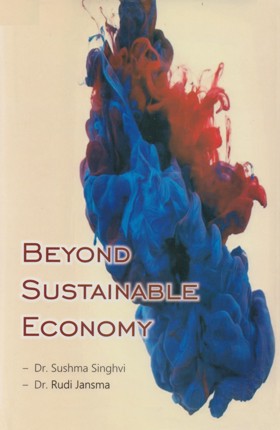"Our task is to look at the world and see it in its wholeness"
- A guide to the Perplexed, 25).
Seen variously by friends and followers as an economist par excellence, champion of intermediate and appropriate technology, an exponent of organic forming, prophet of new economics, apostle of ecology, environmentalism and alternative sources of energy he was a man of true holistic vision like no other of holistic vision is humanly possible. Starting his life as form laborer he learnt to respect labor and because a Rhodes Scholar. His early initiation into development and planning in rural development in Burma and India resulted in his views developed in the essay Buddhist Economics where he argued for a capital saving labor intensive intermediate technology, thus establishing the grounds of his firm view that "it was not the third world which should learn about high technology of the west, but rather the west which should learn from the spiritual perceptions of the East."
Known best to his first book Small is Beautiful he went on to write a dozen books explicating his theory of doing economics "as if people matter" creating the concepts of self-help groups, proving intermediate technology that is workable and which offers an alternative to the tradition of Adam Smith and Keynes. The world has ignored this advice to its own peril as most of his warnings ring truer by the day. He was described by Barbara Ward as belonging to that intensely creative minority who have changed the direction of human thought. Schumacher in each of his four careers - social economics, energy, intermediate technology and writing, achieved distinction and recognition. He made a contribution to human wellbeing that cannot be confined to any place, nation or time and it may be said that he was in the direction of non- greed or nonviolent economy. He proposed minimal or aparigraha, or only judicious utilization of resources at all levels of economic activity. He argued for better understanding and practice of primary production and conservation of energy sources in the face of a maximization of profits. He was the first in modern western economics to ask the question: "Instead of forecasting what we need" some people at least might attempt to work out what it would be wise and prudent to acquire, so that the same way of life can be long sustained." According to studies on alternative patterns of living, unquestionably patterns exist which permit genuine increases in the quality of living.
One should place standards which avoid an increase in the squandering of irreplaceable resources. He was of the view that "economic systems must not be judged exclusively by their productive efficiency: the production of integral human beings is more important than the production of commodity. According to him at the heart of our system of work lies our system of values, and more precisely our view of the individual and his relationship with others, and he gave the essential judicious work ethic: to produce necessary and useful goods and services to enable us to use and perfect our gifts and skills and to serve and collaborate with other people so as to liberate ourselves from our inborn egocentricities recommending this requires a new technology on a smaller scale, capital saving, less rapacious in its material demands and environmentally non violent. The most critical task that now confronts the rich and the poor societies alike is how to enable us to do creative and satisfying work, earn a decent living, live in a becoming way and, having done so, to leave the planet earth in a condition no less capable of supporting life than it was when civilization began.
 Dr. Anju Dhadda Misra
Dr. Anju Dhadda Misra
 Dr. Rudi Jansma
Dr. Rudi Jansma
